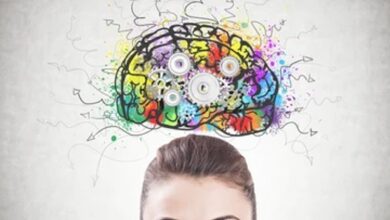Emotions definition and types positive negative list of emotions
What are emotions
What are emotions? Emotions are considered an affective state that produces a set of organic changes at the physiological and endocrine level. The emotion is experienced instantaneously , appearing at a certain moment and with the tendency to act in positive or negative polarities. On the other hand, it maintains a short duration in time and its origin normally comes influenced by an external experience, on which a valuation process is established, which is reproduced automatically influenced by our past evolutionary and personal experiences. Emotion functions can respond in an adaptive, motivational, or social way. In this article we will provide you the definition of emotions and types.
- Adaptive : prepares the body to adapt to the action that precedes, that is, it adapts the behavior to the action that must be carried out according to environmental conditions.
- Motivational : it stimulates or diminishes the motivation to go towards a certain objective.
- Social : it maintains a predictive component, producing that outsiders can minimally intuit how we are going to act and that oneself can see it in others, which contributes to interpersonal relationships.
Types of emotions: positive and negative
As we have previously established, emotions can be presented under two different classifications: positive and negative emotions. What are positive and negative emotions?
Positive emotions
Positive emotions refer to the set of emotions that are related to pleasant feelings , that understand the situation as beneficial and are maintained in a short space of time. Examples of positive emotions are happiness or joy, among others. Positive emotions help increase attention, memory, awareness , retention of information and allow us to maintain several concepts at the same time and how they relate to each other. Against this, it should be noted that positive emotions are mobilizing, that is, when we experience them we have more desire to do things and we perform better.
Negative emotions
Negative emotions refer to the set of emotions that stimulate unpleasant feelings and consider the situation that is presented as harmful, which allows the person to activate their coping resources. Negative emotions warn us of certain circumstances considered a threat or a challenge. Examples of negative emotions are fear, anger or sadness, among others. Negative emotions increase our consciousness helping us to focus attention on the problem that is presented to us, being also mobilizing.
Both types of emotions are normal and necessary . However, the predominance of positive emotions leads to a healthier and happier life, while the presence of more negative than positive emotions leads to stress and overwhelm, which can cause problems to intensify.
List of positive and negative emotions
There are a large number of emotions that can be classified under the connotation of positive emotions or negative emotions. What are the positive and negative emotions? Below is a list of the most common positive and negative emotions.
List of positive emotions
- Acceptance : availability to approve a specific situation.
- Affection : feeling love for someone or something.
- Appreciation: feeling of esteem for someone who has done something for us and we get the feeling of wanting to give it back.
- Joy : feeling that manifests itself from a good state of mind, involves satisfaction and is accompanied by a smile or laugh.
- Love : feeling of affection towards someone or something, which brings us closer to happiness.
- Well-being : state in which the person is in a balance in the good functioning between his somatic and psychic life.
- Fun : focus attention on entertainment that creates a feeling of well-being.
- Enthusiasm : born from passion towards something or someone.
- Hope : confidence in achieving what you want.
- Happiness : feeling of absolute satisfaction.
- Joy : very intense emotion generated by something that you really like.
- Humor : a state that allows us to focus our attention on the comic side of what happens to us.
- Illusion : being hopeful or excited about something.
- Motivation : reaction to what we have to do that encourages us to do it with more enthusiasm and energy.
- Passion : it comes from love and it tends to manifest itself in the sexual sphere.
- Satisfaction : an effect that arises from the accomplishment of something, well done and that helps to increase self-confidence and security.
List of negative emotions
- Boredom : a state of mind that arises in the face of lack of distraction or stimuli.
- Overwhelmed : feeling that implies an emotional load which produces fatigue.
- Anguish : a state of mind that involves restlessness, which arises as a result of worry or suffering.
- Anxiety : state of restlessness, which involves high physical and mental excitement.
- Disgust : feeling of dislike related to something or someone, which produces rejection.
- Guilt : feeling of responsibility for an event or action, of a negative nature.
- Disappointment : feeling of disappointment. It arises in a situation that does not turn out as the person expected.
- Despair : it arises from the loss of patience, when it is considered that what the person is facing is irreparable or due to the impotence of being able to overcome it successfully.
- Disgust : feeling produced before a result that was not expected or desired.
- Stress : feeling overwhelmed by a certain situation, due to the demand for performance.
- Frustration : inability to fulfill a goal or desire.
- Outrage : anger against a person or action for being considered unfair.
- Anger : primary emotion that indicates a very great anger against a person or situation.
- Fear : anguish due to the perception of danger
- Worry : state of concern about a problem or situation.
- Anger : feeling of anger that tends to be accompanied by the expression of this anger: shouting, abrupt actions, violent behavior, etc.
- Remorse: feeling of guilt for an action carried out.
- Grudge : hostility towards someone, due to some previous cause with said person that has been able to harm or offend you.
- Sadness : feeling of emotional pain, caused by a triggering factor and which involves thoughts with a pessimistic tone, vulnerable and with a tendency to cry.
- Shame : discomfort due to an action in which the person has felt humiliated or because of the fear of being ridiculous or that someone else will do it.



